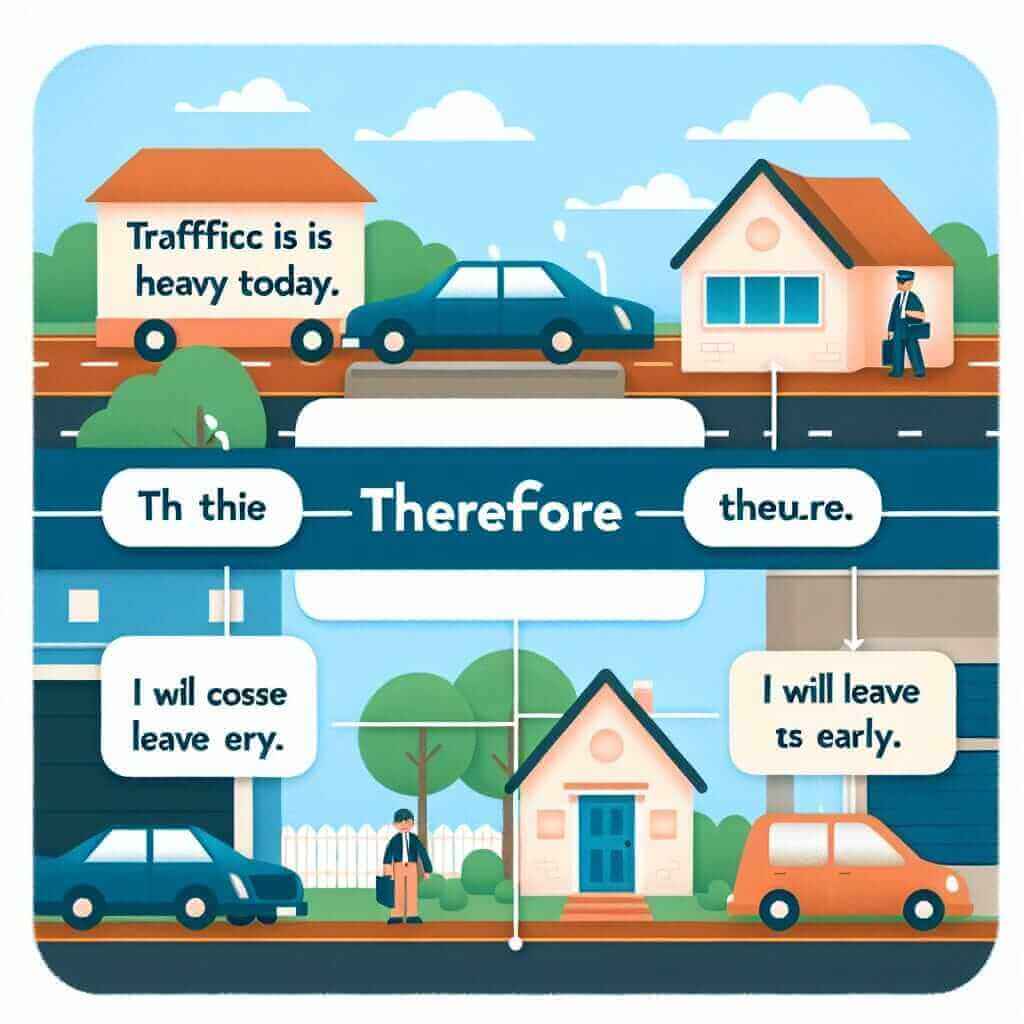“Therefore” is a powerful transition word that can significantly enhance the coherence and sophistication of your writing in the IELTS exam. By mastering its usage, you demonstrate a strong command of English grammar and your ability to present ideas logically, which is crucial for achieving a Band 7 or higher.
Let’s examine some examples of how “therefore” can be used effectively in different sections of the IELTS:
Writing Task 2:
- “Many cities are facing increasing traffic congestion. Therefore, it is essential to invest in public transportation systems.” (This sentence uses “therefore” to connect the problem of traffic congestion with the proposed solution.)
Speaking Part 3:
- “Well, learning a new language requires dedication and consistent effort. Therefore, I believe that setting realistic goals is crucial for success.” (Here, “therefore” is used to introduce a conclusion based on the previous statement.)
Listening Section:
- You might hear a speaker say, “The museum is closed on Mondays. Therefore, we’ll have to visit on a different day.” (“Therefore” signals a change in plans due to the museum’s closure.)
Understanding “Therefore” and its Significance in IELTS
“Therefore” is a conjunctive adverb used to indicate a consequence or result. It signals to the reader or listener that the following statement is a logical conclusion drawn from the preceding information. This clear connection of ideas is crucial in IELTS to demonstrate a high level of coherence and cohesion in your language.
Mastering the Use of “Therefore”
Formula:
Independent Clause 1 + ; therefore, + Independent Clause 2
OR
Independent Clause 1. Therefore, + Independent Clause 2
Explanation:
- Independent Clause: A clause that can stand alone as a complete sentence.
- Semi-colon (;): Can be used to separate two closely related independent clauses.

Usage:
- Writing Task 2: Use “therefore” to connect evidence or supporting arguments with your main points and conclusions.
- Speaking: Employ “therefore” to express your opinions, draw conclusions, or explain the reasons behind your views.
- Listening and Reading: Pay attention to “therefore” as a signal word that highlights important conclusions or consequences within the passages.
Applying “Therefore” for IELTS Success
Writing:
- “Studies have shown a correlation between regular exercise and improved mental health. Therefore, it is recommended that people engage in at least 30 minutes of moderate-intensity exercise most days of the week.”
Speaking:
- “Many people find it challenging to maintain a healthy work-life balance. Therefore, I think it’s essential to set boundaries and prioritize personal well-being.”
Alternative Expressions:
To showcase a wider range of vocabulary, consider using synonyms for “therefore”:
- Consequently
- Thus
- Hence
- As a result
- For this reason
For instance:
- “The demand for electric vehicles is rapidly increasing. Consequently, car manufacturers are investing heavily in their production.”
Common Errors and How to Avoid Them
1. Incorrect Punctuation:
- Incorrect: “The weather was bad, therefore we stayed home.”
- Correct: “The weather was bad; therefore, we stayed home.”
2. Using “Therefore” as a Conjunction:
- Incorrect: “Therefore, the train was delayed, I was late for the meeting.”
- Correct: “The train was delayed; therefore, I was late for the meeting.”
By understanding these common errors, you can refine your use of “therefore” and similar transition words, thereby improving the clarity and fluency of your English.